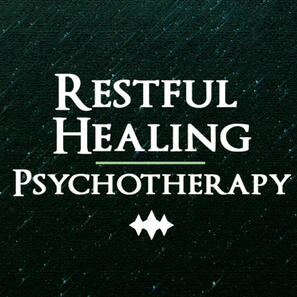
Restful Healing Psychotherapy
Virtual Therapy for Sleep, Relationships, Trauma - Serving adults across Ontario
Professional expertise in helping heal: Insomnia, Grief, Attachment Trauma, Couples and Relationship Challenges, Self-esteem.
Our Story
Welcome to our pageThe story of Restful Healing Psychotherapy began as a curiosity: what was the link between sleep and wellbeing, and why was such a connection not well understood and well treated?Seeking the answer to this question was a journey that spanned more than a decade through the field of Psychology, Counselling, Therapy, Neurocognitive Science, and Philosophy.It should be no surprise that questions often lead to more questions. And, that the journey has no real end.A better question has emerged: how much does distress and unrest across who we are, from the deepest recesses of childhood memories to current affairs, affect our well-being?And even more importantly: how can we recover, how can our very being come to a place of rest? The hope and mission is for our services of psychotherapy and counselling to serve as one of the many answers for such questions.So it would be with great honour if you would allow us to walk with you on your own healing journey, to let us help you find some measure of repose and rest to your hardened and wary spirit.Come teach us what it means to walk the hard journey of healing, and what it means to finally find some rest.Book now for a completely free introductory 20min consultation:

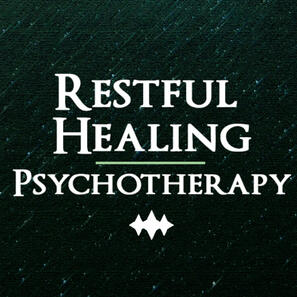
Restful Healing Psychotherapy
Virtual Therapy for Sleep, Relationships, Trauma - Serving adults across Ontario


Reuben Howlett
Masters of Counselling Psychology
Masters of Behavioural Cognitive Neuroscience Psychology
Registered Psychotherapist (RP)
Born and raised in Ontario, Canada, Reuben completed his undergraduate degree in honours Psychology (with a minor in Philosophy). After completion of the BA he decided to travel aboard to get some life and work experience, and landed in South Korea for 5 years where he taught English to children, youth and adults, as well as co-hosted a TV show as a cultural ambassador.Returning to Canada he taught psychology while studying the neuropsychology of sleep, disordered sleeping, insomnia, and their intersection with social functioning, anxiety and depression. Wishing to pursue clinic work he obtained a Masters of Counselling Psychology.After completion of his rigorous formal education and training, Reuben launched Restful Healing Psychotherapy in hopes of providing healing, peace and restful sleep for the community and clientele alike.He has provided consultations to peers, clinicians and professional groups on sleeping disorders, sleep hygiene and psychotherapy modalities and treatments. He also provides training and workshops for attachment wounds, overactive nervous systems (anxiety), and therapeutic interventions.He is available for booking for group workshops and individual case consultation.Reuben has an eclectic approach to working with clients, which is built upon a person-centered, human-not-an-illness approach to mental health care. Depending on your needs and goals in therapy Reuben leverages his formal and personal training in an array of modalities including: Rogerian Person-centered Approaches (PCT), Insight-oriented Care, Cognitive Behavioural Therapy for Insomnia (CBT-I), Dialectical Behavioural Therapy (DBT), Emotionally Focused Therapy for Individuals or Couples (EFT), Acceptance and Commitment Therapy (ACT), Attachment Theory and Therapy, and Complex Grief Therapy.When not working Reuben enjoys writing (sci-fi & fantasy), roleplaying, playing tennis, weight-lifting, skating, playing video games, tea-drinking, learning the piano, and spending time with his cat, daughter and wife.
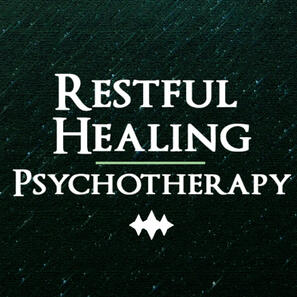
Restful Healing Psychotherapy
Virtual Therapy for Sleep, Relationships, Trauma - Serving adults across Ontario
Introductory Consultation
Free! (20 Minutes)
Around half of the effectiveness of therapy comes from a good fit and alignment between the therapist and the client. We offer a free 20 minute meet and greet where we get to introduce ourselves to each other, we get to learn more about your challenges and goals of therapy, and we can hatch a preliminary plan together if we decide to proceed. It is also a chance for you to ask any questions about therapy itself, our approach, and/or our expertise.Therapy is a big deal, and can be as challenging as it is fruitful. We want to ensure you come away feeling that Restful Healing Psychotherapy is the right choice for you even before you book a full session.
Individual Therapy
Psychotherapy sessions are a dedicated time to work through life's many challenges, to look at oneself together with an expert, and to generate and utilize powerful insights for growth and healing. The sessions are guided by your own individual goals and pace.
Couples Therapy
Couples works involves coming together with your partner in a safe and welcoming space. Together we will examine breakdowns in communications, broken boundaries, missing intimacy and unfulfilled needs. We will find our way forward to improve the quality of your relationship.
Topics that Restful Healing Psychotherapy specializes in improving:• Insomnia and poor sleep
• Nightmares
• Self-esteem
• Anxiety and Depression
• Interpersonal/family trauma
• Grief and bereavement
• Life transitions
• Marriage/pre-marriage challenges
• Relationship and communication issues
• Loss of intimacy
• Attachment wounds
• Anxiety and depression
• Identity and existential concerns
Payment FAQ
Q1. How do I pay for sessions?
A. Payments are done through automatic billing at the end of each session using a credit card provided. Alternative payment methods such as etransfer can be arranged. You will receive an email copy of a full receipt upon payment.Q2. Is there flexibility in session costs?
A. Yes, we currently offer sliding scale prices for those who are having financial difficulty, including but not limited to youth and students. Please reach out to discuss.Q3. Is Psychotherapy covered under work benefits / health insurance?
A. Psychotherapy is covered under any provider that offers coverage for Psychotherapy with a Registered Psychotherapist (RP). Restful Healing Psychotherapy is currently registered with all of the major providers included Sunlife, Manulife, Greenshield, Desjardins, Pacific Blue Cross, etc. Please check your benefits under your provider's package and reach out to them if you have questions.
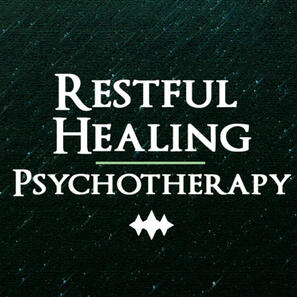
Restful Healing Psychotherapy
Virtual Therapy for Sleep, Relationships, Trauma - Serving adults across Ontario
Looking to learn more information or have an inquiry? Let's connect.
Most times taking the first step is the hardest part.
365-364-1050[email protected]
The clinic is open weekday evenings and closed on weekends.We service Canada (except Alberta and Quebec) virtually
Located in St. Catharines, Ontario
Servicing the Niagara Region since 2022
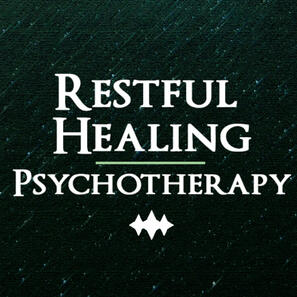
Restful Healing Psychotherapy
Virtual Therapy for Sleep, Relationships, Trauma - Serving adults across Ontario
Surviving Narcissistic Abuse from Parents: Healing Through Psychotherapy with Restful Healing
February 17th, 2025

Hey all! It's been awhile, sorry for the slow updates as I have been busy with family life over here. Today I want to talk about survivors of narcissistic abuse, especially surviving growing up with narcissistic-trait parents.Narcissistic abuse by a parent always leaves deep emotional wounds that affect self-esteem, relationships, and emotional regulation over the entire lifespan. Unlike overt forms of physical abuse, narcissistic abuse is psychologica, and unfortunately goes unrecognized and unreportedl: it often involves chronic invalidation, manipulation, and conditional love (Cohen, 2018).This blog post intends to explore how to recognize common signs & symptoms of parental narcissistic abuse and how psychotherapy can support healing.What Is Narcissistic Abuse?Simply put: parental narcissistic abuse occurs when a parent consistently prioritizes their own needs, self-image, or emotional regulation over the emotional well-being of their child (Miller et al., 2019). Children raised in this environment may be used to bolster the parent’s self-esteem, be blamed for problems, or completely emotionally ignored and/or invalidated. Such dynamics distort the child’s sense of self and safety.Survivor Symptom ProfileAdult survivors of narcissistic parental abuse may experience a range of emotional and relational difficulties.These can include:
- Low self-esteem and self-doubt (Brummelman et al., 2015)
- Hypervigilance in relationships (Campbell & Foster, 2007)
- Difficulty trusting others (Mikulincer & Shaver, 2016)
- People-pleasing or approval-seeking behaviors (Winnicott, 2018)
- Emotional flashbacks or shame responses when criticized (Schwartz, 2013)These patterns often reflect early attachment disruptions and chronic emotional invalidation rather than personal weakness.How Psychotherapy Helps RecoveryPsychotherapy can provide corrective emotional experiences and tools for rebuilding self-trust, though the damage will always lead to a lifelong struggle.1. Establishing Safety and ValidationA key first step in therapy is building a safe relationship where the survivor’s experiences are believed and validated. This helps counter the internalized messages of unworthiness or defectiveness common after parental narcissistic abuse (Rogers, 1961).2. Cognitive-Behavioral ApproachesCognitive-Behavioral Therapy (CBT) helps individuals identify and challenge maladaptive thought patterns shaped by abusive parental messaging (Beck, 2011). This can help to disentangle where a survivor is truly at fault and where they take on inappropriate layers of guilt and shame for things outside of their control.3. Trauma-Informed ModalitiesTrauma-informed therapies help to go back to childhood experiences and reshape and reformulate our perspectives on what happened in order to see the self as wounded, lost and having developed psychological adaptations to survive a very painful environment (Shapiro, 2018).4. Attachment-Focused and Experiential TherapiesApproaches like Internal Family Systems or attachment-based therapy help survivors understand how early relational wounds continue to affect present-day self-regulation and relationships, including the relationship with self and their significant others (Johnson, 2019; Schwartz, 2013).Practical Healing WaysAt Restful Healing Pscyhotherapy we help recovery by helping you to:
- Practice self-compassion and internal validation (Neff, 2011).
- Learning how to set and maintain healthy boundaries (this is key!)
- Engage in supportive social connections
- Align self internally and socially with core values
- Go through attachment history and wounds and do inner-child/self to heal old woundsConclusionSurviving narcissistic parental abuse is neither simple nor linear. It involves recognizing subtle patterns of emotional harm and relearning a safe sense of self. With psychotherapy and intentional support, survivors can reclaim autonomy, forge healthier relationships, and build emotional resilience.If this is you and you don't have support yet, book with us so that we may help!References
Beck, J. (2011). Cognitive Behavior Therapy: Basics and Beyond (2nd ed.). Guilford Press.
Brummelman, E., Thomaes, S., & Sedikides, C. (2015). The psychology of narcissism: An integrative approach. Oxford University Press.
Campbell, W. K., & Foster, J. D. (2007). The narcissistic self: Background, an extended agency model, and ongoing controversies. Handbook of Individual Differences in Social Behavior.
Cohen, A. (2018). Stop Caretaking the Borderline or Narcissist: How to End the Drama and Get On with Life. New Harbinger.
Johnson, S. M. (2019). Attachment theory in practice: Emotionally focused therapy (EFT) with individuals, couples, and families. Guilford Press.
Mikulincer, M., & Shaver, P. R. (2016). Attachment in Adulthood: Structure, Dynamics, and Change (2nd ed.). Guilford Press.
Miller, J., et al. (2019). Narcissistic abuse: Conceptual review and implications for mental health. Journal of Trauma & Dissociation, 20(1), 85–111.
Neff, K. (2011). Self-Compassion: The Proven Power of Being Kind to Yourself. William Morrow.
Rogers, C. R. (1961). On Becoming a Person. Houghton Mifflin.
Schwartz, R. C. (2013). Internal Family Systems Therapy. Guilford Press.
Shapiro, F. (2018). Eye Movement Desensitization and Reprocessing (EMDR) Therapy: Basic Principles, Protocols, and Procedures (3rd ed.). Guilford Press.Keywords: narcissistic abuse, parental narcissism, emotional abuse recovery, psychotherapeutic healing, narcissistic family trauma, adult children of narcissistic parents, coping with narcissism, mental health therapy
On Psychotherapy, ADHD and Substance Use Issues
November 19th, 2025
ADHD and Addiction: A Significant LinkPeople with attention-deficit/hyperactivity disorder (ADHD) are at meaningfully higher risk for developing substance use problems across adolescence and adulthood. I looked at a large meta-analytic review that found that childhood ADHD significantly increases the likelihood of later substance use and substance use disorders (SUDs), especially for nicotine, cannabis, and other illicit drugs (Lee et al., 2011). Early ADHD symptoms often precede substance problems rather than emerging as a consequence. (Lee et al., 2011).Why are ADHD and addiction connected? Neurobiological models emphasize shared vulnerabilities in reward processing and response inhibition: brain systems that underlie impulsivity and poor delay of gratification can increase both risky substance use and ADHD symptoms (Wilens, 2004). Psychosocial pathways matter too — untreated ADHD often leads to school failure, conflicted relationships, and social isolation; some people may use substances to self-medicate mood or concentration problems. Co-occurring disorders further amplify the risk sadly :( (e.g., conduct disorder, bipolar disorder; Wilens, 2004).What this means for therapy treatmentScreen proactively. Because ADHD frequently co-occurs with SUD, screening for attentional symptoms and substance use should be routine in both addiction and mental-health settings (Lee et al., 2011; Wilens, 2004).Treat both conditions. Integrated care models that address ADHD and SUD together give the best chance for meaningful recovery — addressing only one condition leaves the other to fuel relapse. (Wilens, 2004).Psychotherapy helps (that's us!). Evidence-based psychosocial approaches—particularly cognitive-behavioral therapy (CBT) adapted for adult ADHD—reduce ADHD symptoms and improve functioning; CBT and motivational approaches also support substance-use goals when tailored to comorbidity (Safren et al., 2010; Wakelin et al., 2023).Medications require careful planning. Randomized trials and meta-analyses show ADHD medications can reduce core ADHD symptoms in individuals with co-occurring SUD, but effects on substance abstinence are mixed and modest; clinicians should weigh abuse liability, monitor closely, and use integrated addiction supports when prescribing (Cunill et al., 2015). Though that is something you'd discuss with your medical health team and not us!Practical steps for clinicians and clientsUse validated screening tools for ADHD and substances early in treatment (Lee et al., 2011).When ADHD is identified, collaborate across specialties (addiction medicine, psychiatry, psychotherapy) to build an integrated plan (Wilens, 2004). We're happy to be involved/work-collaboratively with your allied health teamCombine behavioral strategies (CBT, skills training, relapse prevention) with pharmacotherapy only after careful assessment; emphasize harm-reduction and relapse monitoring (Safren et al., 2010; Cunill et al., 2015).Teach concrete executive-function compensatory skills (scheduling, break tasks into steps, environment structuring) that reduce the need to “self-medicate” with substances (Wakelin et al., 2023). This is especially where Restful Healing Psychotherapy can come in to aid!
TakeawayADHD is not simply a “distraction problem” — it is a neurodevelopmental condition that often co-exists with addiction and that changes how we should assess and treat substance use. Screening, integrated treatment, and a combination of CBT-style skills work plus carefully supervised pharmacotherapy give the best chance of improved outcomes for people with both ADHD and SUD.Let's work together to improve your well-being eh :).Keywords: ADHD integrated treatment, ADHD therapy for adults, ADHD cognitive-behavioral therapy, ADHD medication and addiction risks, Executive functioning and addiction, Psychotherapist for ADHD, Addiction counselling for ADHD, ADHD therapist near me, ADHD and addiction counselling, Mental health therapy for ADHDReferencesCunill, R., Castells, X., Tobias, A., & Capellà, D. (2015). Pharmacological treatment of attention deficit hyperactivity disorder with co-morbid drug dependence: A systematic review and meta-analysis. Journal of Psychopharmacology, 29(1), 15–23. https://doi.org/10.1177/0269881114544777
Lee, S. S., Humphreys, K. L., Flory, K., Liu, R., & Glass, K. (2011). Prospective association of childhood attention-deficit/hyperactivity disorder (ADHD) and substance use and abuse/dependence: A meta-analytic review. Clinical Psychology Review, 31(3), 328–341. https://doi.org/10.1016/j.cpr.2011.01.006
Safren, S. A., Sprich, S., Mimiaga, M. J., Surman, C., Knouse, L., & Groves, M. (2010). Cognitive behavioral therapy vs relaxation with educational support for medication-treated adults with ADHD and persistent symptoms: A randomized controlled trial. JAMA Psychiatry, 67(7), 760–768. https://doi.org/10.1001/archgenpsychiatry.2010.88
Wilens, T. E. (2004). Attention-deficit/hyperactivity disorder and the substance use disorders: The nature of the relationship, subtypes at risk, and treatment issues. Psychiatric Clinics of North America, 27(2), 283–301. https://doi.org/10.1016/S0193-953X(03)00113-8
Wakelin, C., Willemse, M., & Munnik, E. (2023). A review of recent treatments for adults living with attention-deficit/hyperactivity disorder. South African Journal of Psychiatry. Advance online publication. PMID: 38126038.
An Overview of ADHD and Psychotherapy approaches that we offer
October 6th, 2025
Attention-deficit/hyperactivity disorder (ADHD) is a that persists across the lifespan and presents in different “presentations”, based on the person, rather than with rigid subtypes. However, there are three main symptom clusters, and while people present as mixed these are the 3 main subtypes: predominantly inattentive, predominantly hyperactive-impulsive, and combined presentation (American Psychiatric Association, DSM-5-TR diagnostic framework).Each presentation brings distinct functional challenges — inattentive presentations often struggle with sustained attention, organization and task initiation, while hyperactive-impulsive presentations show excessive motor activity, interrupting, and impulsivity; combined presentations include both symptom clusters (Faraone et al., 2024).Neurobiologically, ADHD is associated with small but consistent differences in brain structure and function across a network of regions: prefrontal circuits (executive control), basal ganglia (response selection and motor control), cerebellum (timing and coordination), and altered intrinsic network interactions such as the default-mode network (which can interfere with task-focused attention) (Faraone et al., 2024; Parlatini, 2024). These network effects help explain why ADHD symptoms map onto attention, inhibition, timing and motivation differences.Psychotherapeutic approaches are a key part of treatment, especially for functional skill-building and comorbid emotional difficulties. Cognitive-behavioural therapy (CBT) and CBT-derived protocols that emphasize organizational skills, planning, problem solving and behavioural activation have the best evidence in adults. Meta-analytic on the literature indicates moderate effects on core ADHD symptoms and additional benefits for depression and anxiety (Liu et al., 2023). Integrating skill modules that target inattention (time management, breaking tasks into steps) or hyperactivity/impulsivity (stimulus control, behavioral rules) can be tailored to the person’s dominant presentation.Third-wave approaches (mindfulness-based interventions) and digital/internet-delivered CBT show promising adjunctive benefits for self-regulation and everyday functioning, though the evidence base is still maturing and benefits are often larger when psychotherapy is combined with optimized medication when indicated (Faraone et al., 2024; Li et al., 2024). For interventions that claim to directly ‘repair’ brain function (e.g., neurofeedback), recent systematic reviews show mixed results: small effects have been reported, but sham-controlled trials often reduce or eliminate apparent benefits, so neurofeedback should be considered experimental at present. Collaborative care that combines medication (when appropriate) with psychotherapy and occupational/educational supports yields the best outcomes for many people (Faraone et al., 2024; Liu et al., 2023).While ADHD can pose real challenges, many individuals also demonstrate distinct strengths. Research highlights enhanced creativity, divergent thinking, and the ability to generate novel ideas under time pressure (Boot et al., 2024). High energy, spontaneity, and resilience can translate into innovation and adaptability in dynamic environments. People with ADHD often excel when engaged in stimulating, fast-paced, or purpose-driven work, and can display exceptional empathy and problem-solving in crisis situations (Nielsen & Chandra, 2023). Emphasizing strengths within therapy fosters self-efficacy and promotes a balanced, empowering view of neurodiversity.Practical psychotherapy-focused skill building that Restful Psychotherapy offers includes: structured organization and planning routines (calendars, implementation intentions), environmental structuring (reducing distractions), behavioral activation and activity scheduling (to counter inertia in inattentive presentations), impulse-control strategies (delay tactics, stimulus control), emotion regulation skills (CBT/DBT strategies), and relapse-prevention planning. We endeavour to work together with your brain, rather than against it.Keywords: ADHD subtypes, ADHD inattentive, ADHD hyperactive, ADHD combined, ADHD psychotherapy, CBT for ADHD, skills training ADHD, adult ADHD treatment, ADHD brain regions, executive function ADHD, mindfulness ADHD, neurofeedback ADHD, ADHD organization strategies.References
Boot, N., Baas, M., & de Dreu, C. K. W. (2024). Creativity and ADHD traits: Divergent thinking and motivational states. Personality and Individual Differences, 216, 112180.
Faraone, S. V., Bellgrove, M. A., Brikell, I., Cortese, S., Hartman, C. A., Hollis, C., Newcorn, J. H., Philipsen, A., Polanczyk, G. V., Rubia, K., Sibley, M. H., & Buitelaar, J. K. (2024). Attention-deficit/hyperactivity disorder. Nature Reviews Disease Primers, 10, 11. https://doi.org/10.1038/s41572-024-00495-0
Liu, C.-I., Hua, M.-H., Lu, M.-L., & Goh, K. K. (2023). Effectiveness of cognitive behavioural-based interventions for adults with attention-deficit/hyperactivity disorder extends beyond core symptoms: A meta-analysis of randomized controlled trials. Psychology and Psychotherapy: Theory, Research and Practice. Advance online publication. https://doi.org/10.1111/papt.12455
Kimura, I., Noyama, H., Onagawa, R., Takemi, M., Osu, R., & Kawahara, J. I. (2024). Efficacy of neurofeedback training for improving attentional performance in healthy adults: A systematic review and meta-analysis. Imaging Neuroscience, 2, 1–23. https://doi.org/10.1162/imaga00053
Li, Y., et al. (2024). Efficacy of cognitive behavioral therapy combined with medication in adult ADHD: meta-analytic findings. Journal of Attention Disorders.
Nielsen, T., & Chandra, A. (2023). Positive traits and resilience in adults with ADHD: A systematic review. Journal of Attention Disorders, 27(5), 451–466.
Surviving and Moving On after Narcissistic Abuse
September 17th, 2025
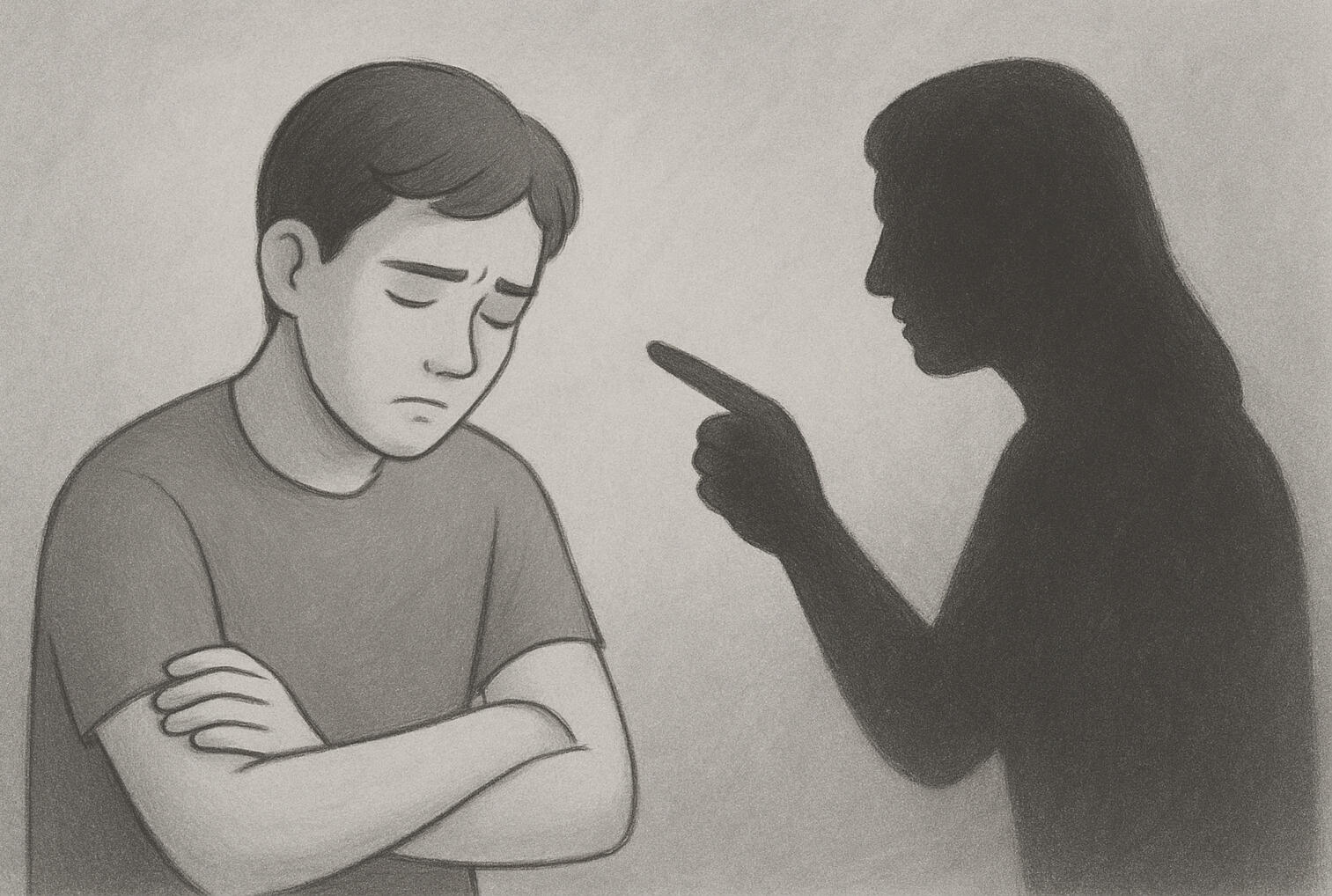
Recovering from narcissistic abuse can feel overwhelming, whether it happens in a romantic relationship, friendship, or family dynamic. Survivors often struggle with trauma bonding, gaslighting, and emotional abuse that leave lasting scars. The good news is that narcissistic abuse recovery is possible. With trauma-informed therapy approaches like CBT and EFIT, as well as self-care strategies and boundary setting, individuals can heal from the effects of narcissistic personality disorder (NPD) abuse and begin to rebuild healthier, more fulfilling relationships.Narcissistic abuse is often subtle at first and escalates over time. It includes patterns such as love-bombing, gaslighting, humiliation, chronic criticism, emotional withholding, and cycles of idealization → devaluation that leave the survivor doubting their judgment and self-worth. These dynamics frequently create trauma bonds: intense, paradoxical attachments to an abuser formed through intermittent reinforcement (reward + punishment).Because narcissistic abuse is relational and often chronic, survivors commonly experience symptoms that overlap with Post-Traumatic Stress Disorder (PTSD) or Complex PTSD (C-PTSD): hypervigilance, shame, avoidance, identity disturbance, and difficulty trusting future partners or friends. Research and clinical reviews stress assessing for complex trauma presentations after prolonged interpersonal abuse.Healthy recovery is both practical and therapeutic. First, safety and boundaries are essential: limiting contact (including no contact when safe), documenting incidents if needed, and building an external support network reduce ongoing harm and weaken trauma bonding. Survivors often need help recognizing manipulation tactics (e.g., DARVO: Deny, Attack, Reverse Victim and Offender) so they can reassign responsibility where it belongs.Therapeutically, evidence supports phased, trauma-informed care. Stabilization (psychoeducation, affect regulation skills, grounding, and safety planning) typically precedes trauma processing for people with C-PTSD symptoms. Empirically supported trauma-focused therapies such as Cognitive Behavioral Therapy (CBT) and attachment-focused healing (such as EFIT) have been reviewed as effective ways to recover from abuse. Here at Restful Healing Therapy we employ a Humanistic, CBT and self-insight oriented approach to recovery, as well as guiding assistance to make a safe plan for withdrawing from the abuse and restoring self-esteem through Attachment focused work using Emotionally Focused Individual Therapy (EFIT).Treatment goals include (1) reducing trauma symptoms, (2) restoring a coherent sense of self and boundaries, and (3) developing relational safety skills (healthy trust calibration, assertive communication, and boundary enforcement). Therapeutic approaches that focus on maladaptive schemas, attachment wounds, and emotion regulation — for example schema-focused work, trauma-focused CBT, and attachment therapy — are commonly recommended in contemporary clinical guidance.Practical steps clients can take now: connect with a trauma-informed therapist (that is us!), create a safety plan (including online/privacy measures), re-establish social supports, practice self-compassion exercises and grounding skills, and soberly re-evaluate contact with the abuser. Recovery is rarely linear — setbacks are common — but many survivors report meaningful post-traumatic growth when they combine safety, community, skills, and evidence-based therapy.Keyterms: How to recover from a narcissistic relationship, Best therapy for narcissistic abuse recovery, Healing after emotional abuse from a narcissist, Steps to move on from narcissistic friendships, Trauma-informed therapy for narcissistic abuse, How to break free from trauma bonding, Psychological effects of narcissistic relationships, Self-care strategies after narcissistic abuseReferences
de Jongh, A., de Roos, C., & El-Leithy, S. (2024). State of the science: Eye movement desensitization and reprocessing (EMDR) therapy. Journal of Traumatic Stress, 37(2), 205–216.
Droz̆d̄ek, B., & Rodenburg, J. (2024). Healing wounded trees: clinicians’ perspectives on treatment of complex posttraumatic stress disorder. Frontiers in Psychiatry.
ResearchGate
Oliver, E., Coates, A., Bennett, J. M., & Willis, M. L. (2024). Narcissism and intimate partner violence: A systematic review and meta-analysis. Trauma, Violence & Abuse, 25(3), 1871–1884.
Copley, L. (2024, August 23). Overcoming trauma bonding: 8 strategies & exercises. PositivePsychology.com.
American Psychological Association. (2025, July–August). PTSD and trauma: New APA guidelines highlight evidence-based care. APA Monitor on Psychology.
Verywell Mind. (2023). How narcissists use DARVO to avoid accountability.
Better Sleep Starts Here: CBT-I Tips for Sleep Hygiene and Getting Unstuck
August 7th, 2025
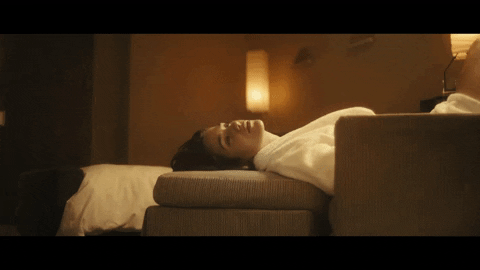
Let’s face it—sleep can be a fickle creature. It can be our greatest ally or enemy, depending on its whim. One night it shows up perfectly on time, the next it's playing hard to get. If you're tossing, turning, and counting sheep who refuse to cooperate, you're not alone. Insomnia affects up to 30% of adults, and it’s not just about being tired—poor sleep can mess with mood, focus, immunity, and even increase the risk of mental health disorders (Riemann et al., 2017).But there’s hope, and no, it’s not in the bottom of your eighth lavender tea (which is entirely too delicious). Introducing CBT-I—that’s Cognitive Behavioral Therapy for Insomnia, not some new AI-generated sleep coach. It’s a science-backed, non-drug approach that helps rewire your relationship with sleep through better habits and thinking patterns. Two of the popstars in the CBT-I pop group? Sleep hygiene and behavioral activation.Sleep Hygiene: Clean Up Your Sleep ActThink of sleep hygiene like dental hygiene. You wouldn’t eat candy, brush your teeth in bed, and expect sparkling results—so why are we doom-scrolling in the dark and wondering why we’re not sleeping?Here are CBT-I approved sleep hygiene tips to get your sleep groove back:
1. Keep It Consistent, Even on WeekendsYes, even Saturday. Go to bed and wake up at the same time every day. This anchors your body’s internal clock (aka circadian rhythm), making it easier to fall asleep naturally (Buysse, 2014). But your wake time being consistent is more consistent than bedtime. Try to only go to bed when you are sleepy enough to fall asleep in less than 15 minutes!2. Bedroom = Sleep + Intimacy OnlyIf your bed is also your office, Netflix zone, snack lounge or even the place you dwell on your stressors and life, your brain will get confused. Train it to associate bed with only two activities: sleep and sex. That’s it. Work emails? Out. Even reading is not recommended, but is at least the least of all evils.3. Ditch the DevicesScreens emit blue light that tells your brain it’s party time, not bedtime. Cut off screens at least 30–60 minutes before hitting the pillow, or use blue light filters if you must scroll memes (but don't).4. No Late-Night LattesAvoid caffeine after noon, and be mindful of sneaky sources like chocolate or soda. Alcohol might make you sleepy at first, but it disrupts sleep quality later on.5. Wind Down with a RoutineCreate a 30-minute wind-down ritual. Think stretching, warm bath, reading (a paper book!), or deep breathing. Train your brain to recognize the cues that it’s sleepy time.Behavioral Activation: Mood Follows Motion
Here’s where behavioral activation comes in—an often overlooked CBT-I tool that helps break the insomnia-worry-avoidance cycle. When we feel tired, anxious, or down, we tend to withdraw. But inactivity feeds insomnia and low mood like a goblin after midnight.Behavioral activation flips that by encouraging purposeful daytime activity, especially enjoyable or meaningful ones. Even if you feel like a half-sentient blanket, getting up and doing something (a walk, a call with a friend, painting, heck—even laundry) sends your brain the message: I'm alive, engaged, and ready to sleep tonight.Why it works:Daytime activity boosts sleep pressure—the biological need for rest.Exposure to natural light helps reset your circadian rhythm.Engagement combats rumination and reduces pre-sleep worry, a major insomnia driver (Harvey et al., 2014).Start small. Schedule one mood-boosting activity each morning. Over time, your body and mind will sync up in a more sleep-friendly rhythm.Final Thoughts: Be Gentle With Yourself
Improving your sleep is a marathon, not a mug of melatonin. CBT-I works, but it takes consistency, patience, and sometimes a sense of humor (at least I think so). Don’t aim for “perfect sleep”—aim for better habits, one night at a time. And if you’re still struggling, talk to a CBT-I trained therapist (hey, that's me). Sleep absolutely deserves a spot on your mental health priority list.Keywords: CBT-I sleep tips, sleep hygiene for insomnia, behavioral activation and sleep, how to sleep better without medication, cognitive behavioral therapy for sleep, natural insomnia solutions, improve sleep habitsReferences
Buysse, D. J. (2014). Sleep health: Can we define it? Does it matter? Sleep, 37(1), 9–17. https://doi.org/10.5665/sleep.3298
Harvey, A. G., Hein, C., Dolsen, M. R., & Schmidt, D. A. (2014). Insomnia in everyday life: The role of individual differences in the behavioral regulation of sleep. Psychology Research and Behavior Management, 7, 89–99. https://doi.org/10.2147/PRBM.S53873
Riemann, D., Baglioni, C., Bassetti, C., Bjorvatn, B., Dolenc Groselj, L., Ellis, J. G., ... & Spiegelhalder, K. (2017). European guideline for the diagnosis and treatment of insomnia. Journal of Sleep Research, 26(6), 675–700. https://doi.org/10.1111/jsr.12594
The Dual-Edged Role of AI in Mental Health Care
June 15th, 2025

Keywords: mental health technology, AI in psychotherapy, ethical concerns of AI in healthcare, digital CBT chatbot, privacy risks of AI therapy, benefits and risks of AI in mental healthcare, best AI chatbots for mental health support, can AI replace human therapists?Artificial intelligence (AI) is making significant inroads into the field of mental health, offering innovative tools to support therapy, diagnosis, and emotional well-being. From AI-powered chatbots to predictive algorithms, these technologies have the potential to increase access and personalize care. However, their integration into such a sensitive and complex area of healthcare also raises critical ethical, psychological, and clinical concerns.Upsides to AI for Mental HealthcareOne of the most promising benefits of AI in mental health is expanded access to care. Many individuals face barriers to traditional therapy—whether due to cost, stigma, or limited availability of trained professionals. AI-powered chatbots, like Woebot or Wysa, offer 24/7 support and psychoeducation using cognitive-behavioral techniques. Early studies suggest that these tools can reduce symptoms of depression and anxiety, particularly among users who might otherwise go untreated (Fitzpatrick et al., 2017). They provide a low-cost, stigma-free starting point for many individuals seeking help.AI also shows promise in early detection and monitoring. Algorithms can analyze speech, facial expressions, and social media posts to identify signs of psychological distress or risk of suicide, sometimes before a human clinician could intervene (Schwartz et al., 2014). These tools can support proactive outreach, especially in high-risk populations.Furthermore, AI enhances personalization in therapy. Machine learning models can tailor interventions based on individual behavior, preferences, and outcomes, potentially improving treatment adherence and effectiveness. Some platforms are being trained to detect nuanced emotional states and adjust their responses accordingly, creating the potential for more responsive digital mental health tools.Pitfalls of AI UseHowever, despite these advancements, the dangers of using AI in mental health care are substantial. One of the primary concerns is accuracy and appropriateness. AI lacks true empathy and contextual understanding—qualities essential in mental health work. Mistakes or misinterpretations made by chatbots or diagnostic algorithms can not only be unhelpful, but potentially harmful, especially if users rely on them during crises.
Another issue is privacy and data security. Mental health data is highly sensitive, and the collection and storage of user interactions with AI systems pose serious ethical questions. Misuse or breaches of this data could lead to stigma or discrimination, particularly in vulnerable populations.There are also risks of over-reliance and reduced human contact. While AI can supplement care, it is not a substitute for trained therapists, especially in cases involving trauma, psychosis, or complex mental illness. The therapeutic alliance—a core predictor of positive treatment outcomes—cannot be replicated by machines.Finally, many AI mental health tools lack rigorous clinical validation and are not subject to consistent regulatory oversight. This makes it difficult for users and clinicians to determine which tools are safe or effective.In conclusion, AI has the potential to revolutionize mental health care by making it more accessible and responsive. But its deployment must be cautious, ethically grounded, and always centered around the human experience. Technology can support therapy—but it cannot replace the healer.ReferencesFitzpatrick, K. K., Darcy, A., & Vierhile, M. (2017). Delivering cognitive behavior therapy to young adults with symptoms of depression and anxiety using a fully automated conversational agent (Woebot): A randomized controlled trial. JMIR Mental Health, 4(2), e19. https://doi.org/10.2196/mental.7785
Schwartz, H. A., Eichstaedt, J. C., Kern, M. L., Dziurzynski, L., Ramones, S. M., Agrawal, M., ... & Ungar, L. H. (2014). Towards assessing changes in degree of depression through Facebook. In Proceedings of the Workshop on Computational Linguistics and Clinical Psychology: From Linguistic Signal to Clinical Reality (pp. 118–125). https://aclanthology.org/W14-3214/
Psychology Today. (n.d.). AI and mental health: Promises and pitfalls. Retrieved from https://www.psychologytoday.com/ca/blog/the-future-brain/ai-and-mental-health-promises-and-pitfalls
Healing Attachment Wounds Through Emotionally Focused Therapy
May 8th, 2025

Keywords: attachment theory, attachment wounds, Emotionally Focused Therapy, EFT, attachment-based therapy, therapy for relationships, psychotherapy in OntarioUnderstanding Attachment Theory in TherapyMany of our emotional struggles and relationship challenges can be traced back to attachment wounds—painful early experiences where our emotional needs weren’t consistently met. Attachment theory, first introduced by John Bowlby, helps us understand how these experiences shape the way we connect with others throughout life.When caregivers are responsive and emotionally available, we tend to develop a secure attachment style, feeling confident in both giving and receiving love. On the other hand, if our early experiences involved neglect, inconsistency, or emotional unavailability, we may form insecure attachment styles—leading to patterns of anxiety, avoidance, or emotional disconnection in adult relationships.
How Attachment Wounds Show Up in Everyday LifeUnresolved attachment wounds can deeply affect our self-worth, emotional regulation, and relationship dynamics. You may notice:- Difficulty trusting or relying on others
- Fear of abandonment or rejection
- Emotional shutdown or withdrawal
- A sense that you're “too much” or “not enough”These patterns are often unconscious but can feel very familiar—and frustrating.What Is Emotionally Focused Therapy (EFT)?Emotionally Focused Therapy is a research-backed, attachment-based approach developed by Dr. Sue Johnson. While commonly used in couples therapy, EFT is equally effective in individual psychotherapy, particularly for clients working through attachment-related issues.EFT helps you:- Understand your emotional responses in relationships
- Access and express vulnerable emotions in a safe space
- Rebuild a sense of emotional security and connectionEFT Techniques for Healing Attachment WoundsIn therapy, we use Emotionally Focused techniques to create corrective emotional experiences—moments that directly challenge and soothe old attachment wounds. These techniques may include:Accessing core emotions hidden beneath reactive behaviors (e.g., recognizing fear under anger)Exploring your attachment history and how it shapes your current experiencesDeveloping new emotional patterns based on safety, empathy, and self-compassionOver time, you can begin to form a more secure sense of self and feel more confident in your relationships.Therapy at RH Psychotherapy: A Safe Space for GrowthAt RH Psychotherapy, we offer attachment-informed therapy rooted in approaches like Emotionally Focused Therapy. Whether you’re struggling with relationship difficulties, anxiety, or self-esteem, we’re here to help you reconnect—with yourself and with others—in a meaningful way.You don’t have to navigate this alone. If you’re ready to begin healing from attachment wounds, contact us today for a consultation.
References
Johnson, S. M. (2019). Attachment theory in practice: Emotionally focused therapy (EFT) with individuals, couples, and families. The Guilford Press.
A Blog on Lucid Dreaming
March 13, 2025

What Is Lucid Dreaming?Lucid dreaming occurs when a person gains consciousness within their dream. This awareness allows them to recognize that their surroundings are not real, often leading to the ability to manipulate the dream itself. Some lucid dreamers can fly, change their environment, or even interact with dream characters in meaningful ways. However, Lucid dreaming just means that the dreamer is aware they are dreaming, even if this awareness is fleeting.This state of consciousness typically happens during REM (Rapid Eye Movement) sleep, the phase of sleep when dreams are most vivid. While some people naturally experience lucid dreams, others can train themselves to achieve them through specific techniques.Inducing Lucid Dreaming:
Keep a Dream Journal
- Writing down your dreams as soon as you wake up strengthens your dream recall. Over time, you’ll start noticing patterns and recurring themes, making it easier to recognize when you are in a dream.Perform Reality Checks
- Throughout the day, ask yourself, “Am I dreaming?” Try simple tests like pinching your nose and attempting to breathe, looking at a clock twice to see if the time changes erratically, or pushing your finger through your palm. Another good one is to try to read any available text, as the brain struggles to simulate it. When you make this a habit, you may start doing it in your dreams, triggering lucidity.Use the MILD Technique (Mnemonic Induction of Lucid Dreams)
- Before falling asleep, repeat a phrase like, “Tonight, I will recognize that I am dreaming.” Visualize yourself becoming lucid in a dream. This technique helps set an intention for lucidity.Wake Back to Bed (WBTB) Method
- Wake up after 4-6 hours of sleep, stay awake for 20-30 minutes, then go back to bed while focusing on becoming aware in your dreams. This method increases your chances of entering REM sleep with a heightened state of awareness.Improve Your Sleep Hygiene
- Getting enough quality sleep is crucial for lucid dreaming. Maintain a regular sleep schedule, reduce screen time before bed, and practice relaxation techniques like meditation to enhance dream clarity (and sleep quality while you're at it)!Potential Benefits of Lucid DreamingLucid dreaming isn’t just a fascinating experience—it can also offer a range of mental and emotional benefits, including:Overcoming Nightmares – Lucid dreaming allows people to confront and control their nightmares, reducing fear and anxiety.
Enhancing Creativity – Many artists, writers, and musicians use lucid dreams as a space for inspiration and problem-solving.
Practicing Real-Life Skills – Studies suggest that rehearsing tasks in lucid dreams, such as sports techniques or public speaking, can improve performance in real life.
Boosting Self-Awareness – Lucid dreaming promotes mindfulness and self-reflection, helping individuals explore their subconscious.
Providing a Unique Form of Entertainment – Being able to fly, explore different worlds, or meet historical figures in a dream can be an exhilarating experience.Final ThoughtsLucid dreaming offers a unique window into the subconscious mind, blending science, creativity, and self-discovery. With practice and patience, anyone can learn to harness this fascinating ability. Whether you’re looking for personal growth, artistic inspiration, or simply an escape into a world of limitless possibilities, lucid dreaming may be worth exploring.
References
Aspy, D. J. (2020). Induction of lucid dreams: A systematic review of evidence. Consciousness and Cognition, 83, 102934. https://doi.org/10.1016/j.concog.2020.102934
Baird, B., Mota-Rolim, S. A., & Dresler, M. (2019). The cognitive neuroscience of lucid dreaming. Neuroscience & Biobehavioral Reviews, 100, 305-323. https://doi.org/10.1016/j.neubiorev.2019.03.008
LaBerge, S. (1990). Lucid dreaming: The power of being awake and aware in your dreams. Ballantine Books.
LaBerge, S., & Rheingold, H. (1990). Exploring the world of lucid dreaming. Ballantine Books.
Schädlich, M., & Erlacher, D. (2012). Lucid dreaming and motor learning: Evidence for sleep-related performance gains. Frontiers in Psychology, 3, 531. https://doi.org/10.3389/fpsyg.2012.00531
Schredl, M. (2020). Researching dreams: The fundamentals. Palgrave Macmillan.
Spoormaker, V. I., & van den Bout, J. (2006). Lucid dreaming treatment for nightmares: A pilot study. Psychotherapy and Psychosomatics, 75(6), 389-394. https://doi.org/10.1159/000095446
Stumbrys, T., Erlacher, D., Schädlich, M., & Schredl, M. (2012). Induction of lucid dreams: A systematic review of evidence. Consciousness and Cognition, 21(3), 1456-1475. https://doi.org/10.1016/j.concog.2012.07.003
Introduction to 3 Therapy Techniques
Jan 20th, 2025

Person Centered Therapy (PCT)
Pioneered in the 1940s by the psychologist Carl Rogers, it is the foundation for many of the therapeutic techniques used today1. This approach is built upon the simple concept that people are motivated themselves to improve their wellbeing and psychosocial functioning. With this approach the client is conceptualized as the expert of their own life, and the therapist takes a more supportive than prescriptive role towards meaningful change. The therapist guides the client to learn about themselves while providing safety, warmth, genuineness, and unconditional love and support.PCT has been shown to be an effective approach for helping with a wide array of issues, including but not limited to interpersonal relationships, anxiety, depression, grief, abuse, existential concerns and self-esteem2. However, ‘talk therapy’ and the PCT approach is often not enough, so is best used in tandem with other treatment modalities.Cognitive Behavioural Therapy (CBT)
Cognitive Behavioural Therapy is a gold standard for treatment according to many psychology institutes including the American Psychological Association and European Association of Applied Psychology3. It is used to effectively treat cognitive and behavioural maladaptation, and especially effective in treating depression, anxiety, phobias, sleep issues, eating maladaptations, and substance use challenges4. It is effective because changes can be seen relatively quickly.The principles of CBT are that many psychological and behavioural challenges stem from learned behaviours and patterns of thought that are now unhelpful or maladaptive5. And it seeks to challenge distorted thinking and behaviours and to reassess them in light of better understanding of personal needs and goals for living. An example might be finding ways to overcome one’s fears and overcoming them by taking systematic steps towards a goal.CBT for Insomnia (CBT-I) is especially useful and effective because most challenges with sleep are based on maladaptive cognitions and behaviours surrounding the bed and sleeping6. Through sleep education, sleep hygiene training, sleep tracking (using a sleep diary), and behavioural changes, as well as addressing fears and myths surrounding sleep, most clients see great improvements in their sleep in 2-6 sessions (in our experience at Restful Healing Psychotherapy).CBT has its limitations, however, as it is an approach grounded more in problem solving and logistics than it is in emotional care and insight. Therefore, when it comes to challenges like interpersonal difficulties, individual relationship or couples work, trauma care, abuse, grief, and so on, other approaches are more suitable.Dialectical Behaviour Therapy (DBT)
DBT was developed in a rising need for effective therapeutic care for individuals experiencing intense emotions, emotional distress and suicidal ideations7. It is well suited for treating concerns such as self-harm, personality disorders, PTSD, eating challenges, depression, anxiety, substance use and bipolar8.A basic principle to this approach is that in order to emotionally regulate and make sound behavioural and life decisions, we need to be able to listen to both our rational and emotional halves and find a common ground between the two7. A person might end up trapped responding to overpowering emotional signals, or completely repress or ignore their emotional selves through cold logic until their inner distress reaches a natural and harmful boiling point.DBT uses tools of mindfulness (self awareness), distress tolerance, emotion regulation and interpersonal effectiveness in order to help individuals to feel that their emotions are manageable7. The approach is very much focused on learning how to detect, name and regulate emotions, as well as to honestly understand how attitudes and beliefs contribute to daily struggles. Overall improvements in emotion regulation and feeling well with oneself come with time, with short-term improvements coming along with more medium to long term but lasting improvements in emotional wellbeing overall9.
References
1. Raskin, N. J., & Rogers, C. R. (2005). Person-centered therapy.
2. Kirschenbaum, H., & Jourdan, A. (2005). The current status of Carl Rogers and the person-centered approach. Psychotherapy: Theory, research, practice, training, 42(1), 37.
3. David, D., Cristea, I., & Hofmann, S. G. (2018). Why cognitive behavioral therapy is the current gold standard of psychotherapy. Frontiers in psychiatry, 9, 4.
4. Hofmann, S. G., Asnaani, A., 4. Vonk, I. J., Sawyer, A. T., & Fang, A. (2012). The efficacy of cognitive behavioral therapy: A review of meta-analyses. Cognitive therapy and research, 36, 427-440.
5. Beck, J. S. (2011). Cognitive-behavioral therapy. Clinical textbook of addictive disorders, 491, 474-501.
6. Walker, J., Muench, A., Perlis, M. L., & Vargas, I. (2022). Cognitive behavioral therapy for Insomnia (CBT-I): a primer. Clinical psychology and special education, 11(2), 123.
7. Linehan, M. (2014). DBT? Skills training manual. Guilford Publications.
8. Panos, P. T., Jackson, J. W., Hasan, O., & Panos, A. (2014). Meta-analysis and systematic review assessing the efficacy of dialectical behavior therapy (DBT). Research on social work practice, 24(2), 213-223.
9. Gillespie, C., Murphy, M., Kells, M., & Flynn, D. (2022). Individuals who report having benefitted from dialectical behaviour therapy (DBT): a qualitative exploration of processes and experiences at long-term follow-up. Borderline Personality Disorder and Emotion Dysregulation, 9(1), 8.